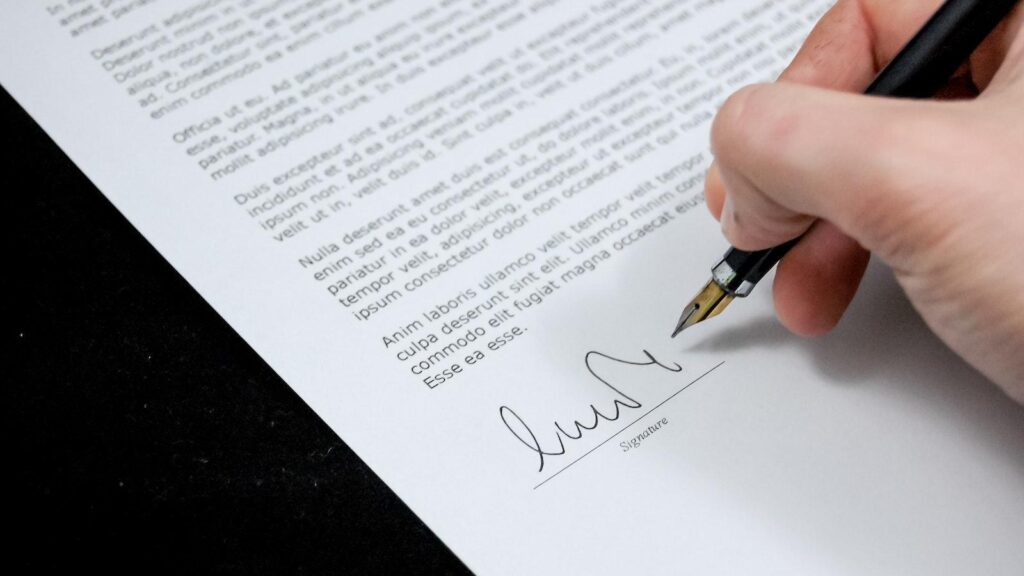People who cannot work due to a condition might get financial support from Social Security Disability Insurance (SSDI). The program’s application process and qualifying requirements, supported by payroll taxes, can be challenging. You may wondering, “Does your employer know if you file for disability?” or “Does disability contact your employer?” Read on to learn more about the circumstances when they just might.
During the initial application stage of SSDI, the Social Security Administration (SSA) often does not contact an applicant’s employer. However, there are several situations where the SSA may get in touch with an employer, such as when they are checking the accuracy of the information on a work history report or looking into fraud.
To maintain confidentiality and seek written permission before contacting an employer, strict privacy laws are in place. In this article, we shall examine whether and when the Social Security Administration may contact an applicant’s employer.
SSDI Eligibility Criteria
Before we discuss whether or not an employer will be notified, it is critical to comprehend the SSDI qualifying requirements. Depending on their age when they became disabled, applicants for SSDI must have worked and paid Social Security taxes for a minimum number of years.
The applicant must also have a medical condition that qualifies as a disability under the SSA criteria.
A physical or mental impairment that prevents a person from engaging in Substantial Gainful Activity (SGA) and is anticipated to continue for at least 12 months or result in death is considered a disability by the SSA.
Work that requires large amounts of physical or mental effort and is performed for pay or profit is referred to as SGA. Work is considered SGA if it is above these amounts in 2023: $1,470 for non-blind people and $2,460 for people who are statutorily blind. Earning above SGA will disqualify a person from Social Security disability benefits.
Medical Evidence
The SSA seeks medical documentation from healthcare professionals to assess if an applicant meets the definition of disability.
The applicants’ medical conditions must be fully disclosed, together with their diagnoses, treatment regimens, and any restrictions on their capacity to work or carry out everyday tasks. The SSA may also ask for additional medical examinations or testing to assess a candidate’s condition.
Contacting Employers
Let’s now discuss if a potential SSDI applicant’s employer will be contacted during the application process. The SSA typically does not contact an applicant’s present employer during the first application stage.
The agency’s main concern is gathering medical data to assess the applicant’s disabilities. But there are some situations in which the SSA might contact an employer.
Work History Report
When the applicant includes a Work History Report with their application, the SSA may, among other things, contact the employer. This report details the applicant’s employment history, including job titles, responsibilities, and pay.
To confirm the integrity of this information, the SSA may get in touch with an employer.

The SSA may also contact the applicant’s former employer if they are no longer employed at the position indicated on the Work History Report to find out when they last worked there and why they left.
The SSA can use this information to assess if the applicant meets the SSDI eligibility requirements and when their disability first manifested.
Continuing Disability Review
The SSA may also contact a company’s employer as part of a Continuing Disability Review (CDR). An SSDI recipient’s eligibility for benefits is reviewed regularly by a CDR. The severity of the recipient’s disability and the likelihood of improvement influence the frequency of CDRs.
The SSA may contact an SSDI recipient’s employer during a CDR to learn more about the recipient’s present employment situation.
Benefits may be terminated or suspended if the beneficiary works and earns more than the SGA cap. Benefits will continue if the recipient is not employed or earns less than the SGA ceiling.
Fraud Investigation
Finally, the SSA may contact an employer as part of a fraud inquiry. If the agency learns that a candidate or recipient may be engaging in fraud, it may launch an inquiry to see if the claims are accurate.
To learn more about the applicant’s employment history or current situation, it may be necessary to contact their present or previous employers.
Privacy Protections
It’s crucial to remember that the Social Security Act imposes rigorous privacy protections on the SSA.
The organization must maintain the privacy of an applicant’s personal information and is only permitted to release it under specific conditions, such as when it’s required to carry out the SSDI program or abide by a court order.
A signed authorization from the applicant is also required before the SSA can speak with the applicant’s employer or any other third party regarding their application.
Before any information is included in the applicant’s application, the applicant has the right to evaluate and approve any information the company provides.

SSDI Application Process
Applicants must undergo a rigorous application procedure and provide substantial information about their medical history, employment history, and personal details to be considered for SSDI.
To guarantee that their application is accurate and comprehensive, applicants should seek the advice of skilled attorneys or advocates. The application procedure can be time-consuming and complicated.
Appealing SSDI Denials
Sadly, many SSDI applications are initially rejected, but those who apply can appeal the decision. A hearing before an Administrative Law Judge is one stage of the appeals procedure, which can be drawn out and have several phases.
To successfully traverse this process and make their case, applicants considering appealing a decision are encouraged to enlist legal counsel.
Conclusion
During the first SSDI application phase, the SSA often does not contact an applicant’s employer. The agency’s main concern is gathering medical data to assess the applicant’s handicap.
SSDI does contact an employer in particular situations, such as when conducting a CDR, confirming information on a Work History Report, or looking into fraud.
The Social Security Act’s rights and privacy protections are crucial for applicants to comprehend.
Applicants have the right to examine and approve any information submitted by their employer, and the SSA is required to get written permission before contacting an employer or any other third party for information relating to an applicant’s application.
A trained advocate or attorney can guide you through the application process and ensure your rights are upheld if you’re considering applying for SSDI. Although qualifying can be complicated, SSDI can give those with disabilities who cannot work much-needed financial help.
Candidates can better prepare themselves to navigate the application process and acquire the benefits to which they are entitled by comprehending the eligibility requirements and conditions under which the SSA may contact an employer.


